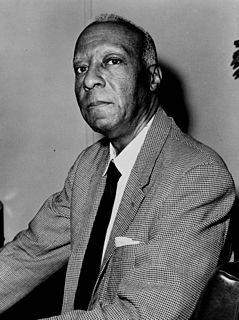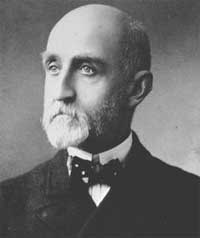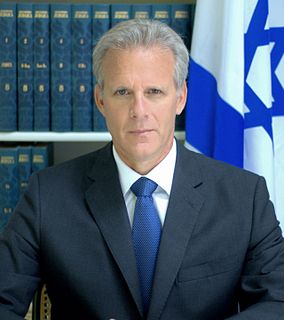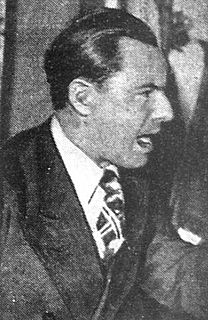A Quote by Richard A. Falk
After the Second World War, facilitating the establishment of the UN and aiding the reconstruction of Europe, the United States was widely viewed, at least in the West, as a benevolent hegemon. In the non-West, the US was often perceived as a supporter of the colonial powers in their struggle to maintain control over their colonial possessions, and was viewed far more critically, especially by emerging elites that were more inclined to socialist development paradigms than to the capitalist ethos favoured by Washington.
Quote Topics
After
Benevolent
Capitalist
Colonial
Control
Critically
Development
Elites
Emerging
Establishment
Ethos
Europe
Far
Inclined
Least
Maintain
More
Often
Over
Perceived
Possessions
Powers
Reconstruction
Second
Second World War
Socialist
States
Struggle
Supporter
Than
United
United States
Us
Viewed
War
Washington
Were
West
Widely
World
World War
Related Quotes
Having therefore no foreign establishments, either colonial or military, the ships of war of the United States, in war, will be like land birds, unable to fly far from their own shores. To provide resting places for them, where they can coal and repair, would be one of the first duties of a government proposing to itself the development of the power of the nation at sea.
The West doesn't have to love us. In fact, we should ask ourselves more often why people are so suspicious of us. After all, the West isn't a charity organization. How have we been perceived for centuries? As a huge, warlike realm ruled by despots - first by the czars and then Bolsheviks. Why should anyone have loved us? If we want to be accepted, we have to do something in return. And it's an art that we have yet to master.
Malcolm X had a clear vision and an understanding that we were - that he was a part of a broad freedom struggle. As his vision became more internationalist and pan-African, as he began, especially in 1964, after seeing the example of anti-colonial revolutions abroad and began to articulate and incorporate a socialist analysis economically into his program, he clearly became a threat to the US state.
Oliver Cromwell (1599-1658) moved from a legitimate to a charismatic role, reversing the course followed by Washington. Yet therewere surface similarities in their careers. Both led military rebellions against English monarchs--Cromwell against Charles I, Washington against George III. Each took local militia--the "train bands" of Cromwell, the colonial levies of Washington--and forged professional armies on a national scale. Each infused a new ethos in his troops--a religious spirit in Cromwell's case, a post-colonial American identity in Washington's.
It is not to save capitalism that we fight in Russia … It is for a revolution of our own. … If Europe were to become once more the Europe of bankers, of fat corrupt bourgeoisies we should prefer Communism to win and destroy everything. We would rather have it all blow up than see this rottenness resplendent. Europe fights in Russia because it [i.e., Fascist Europe] is Socialist. what interests us most in the war is the revolution to follow The war cannot end without the triumph of Socialist revolution.
As you look back in history, we [the United States] have done wonderful things, the Marshal Plan is the most obvious. After World War II, we spent billions of dollars to rebuild Europe or at least part of Europe after the devastation of World War II. We did it out of charity, but we also did it to keep the Russians from getting deeply into Europe.
We all accuse Vladimir Putin of Cold War nostalgia, but Washington's elites - politicians and intellectuals - miss the old days as well. They wish for the world in which the United States was utterly dominant over its friends, its foes were to be shunned entirely, and the challenges were stark, moral, and vital. Today's world is messy and complicated. China is one of our biggest trading partners and our looming geopolitical rival. Russia is a surly spoiler, but it has a globalized middle class and has created ties in Europe.
Far more people die in the developing world than in the West. At religious festivals mainly. That's not a myth - the numbers don't lie. I think it's just because in the West crowds tend to be manufactured by commercial interesting, and they have, or at least should have, a responsibility for keeping people safe.
Unemployment is higher in Europe than in the United States and primarily concentrated in immigrant minority populations, so people are worried about what's going to happen and if American-style ghettos are emerging in Europe. There are some of the problems there that America sees associated with the lack of economic inclusion - family breakdown, gang behavior, and racial tensions. I get the sense that in Europe they are much more concerned about these issues than in the United States.
The sense of Islam as a threatening Other - with Muslims depicted as fanatical, violent, lustful, irrational - develops during the colonial period in what I called Orientalism. The study of the Other has a lot to do with the control and dominance of Europe and the West generally in the Islamic world. And it has persisted because it's based very, very deeply in religious roots, where Islam is seen as a kind of competitor of Christianity.



































